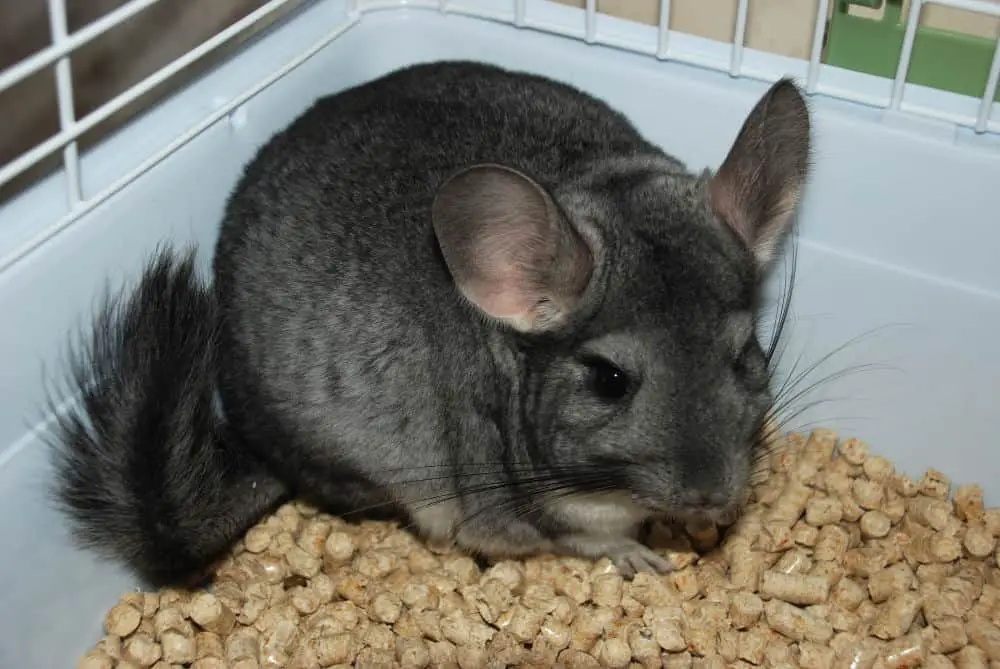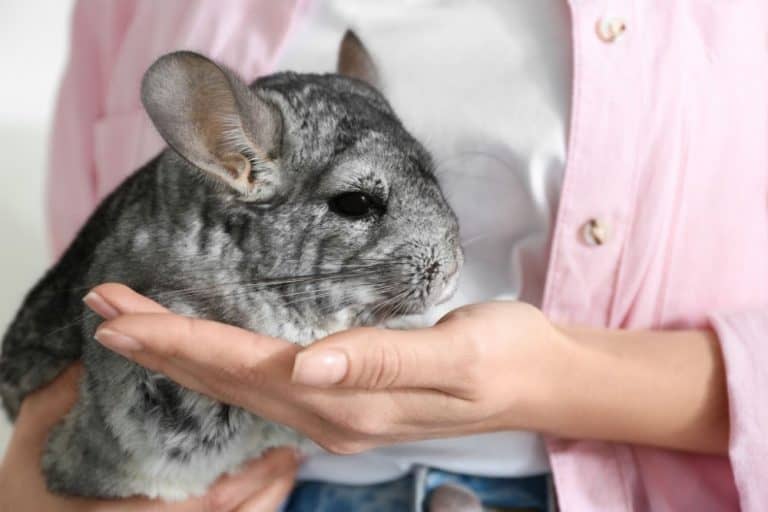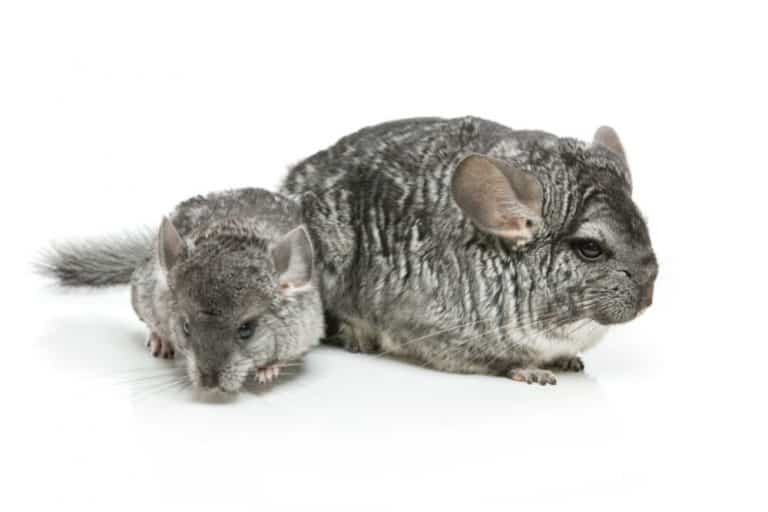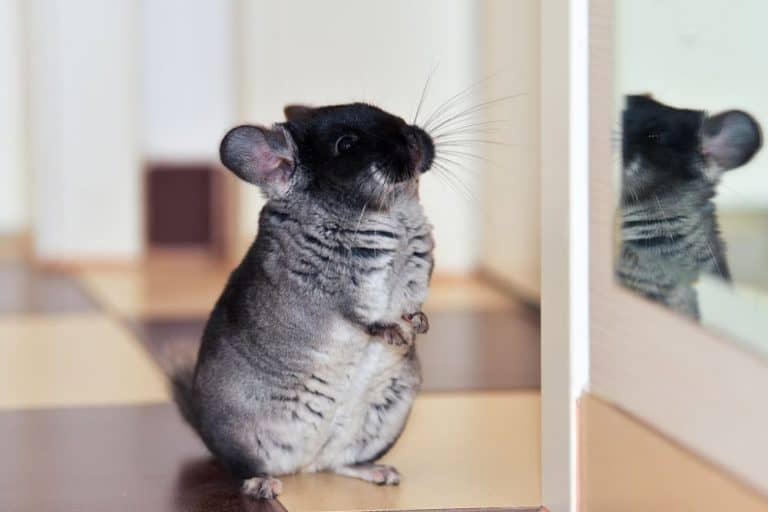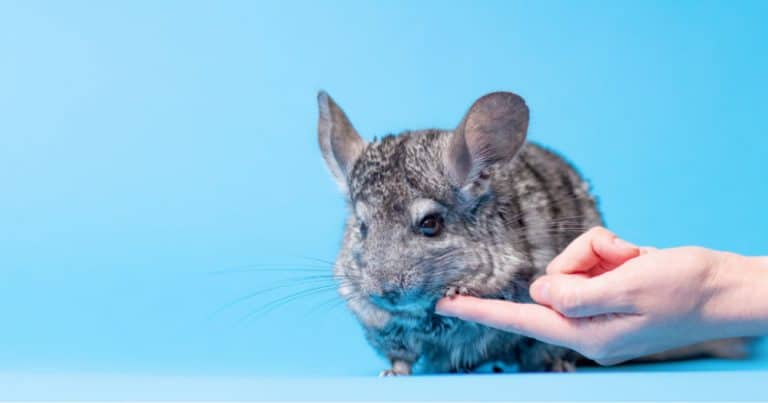Do chinchillas need a friend? Are they OK alone?
I was at the pet store the other day and overheard a customer asking one of the employees about the chinchillas. The customers wanted to know do chinchillas need a friend or are they OK alone?
Chinchillas are naturally social animals who live in groups in the wild. However, as a pet, they can be OK alone, if you are willing to spend a lot of quality time with them, essentially becoming their friend. You must provide your chinchilla with lots of human interaction and time out of their cage to play and explore.
So while chinchillas may like to have a friend, they can be OK alone. If you decide on having a single chinchilla, you need to be prepared to provide your chinchilla with plenty of human interaction and time out of his cage so that they see you as a friend and companion.
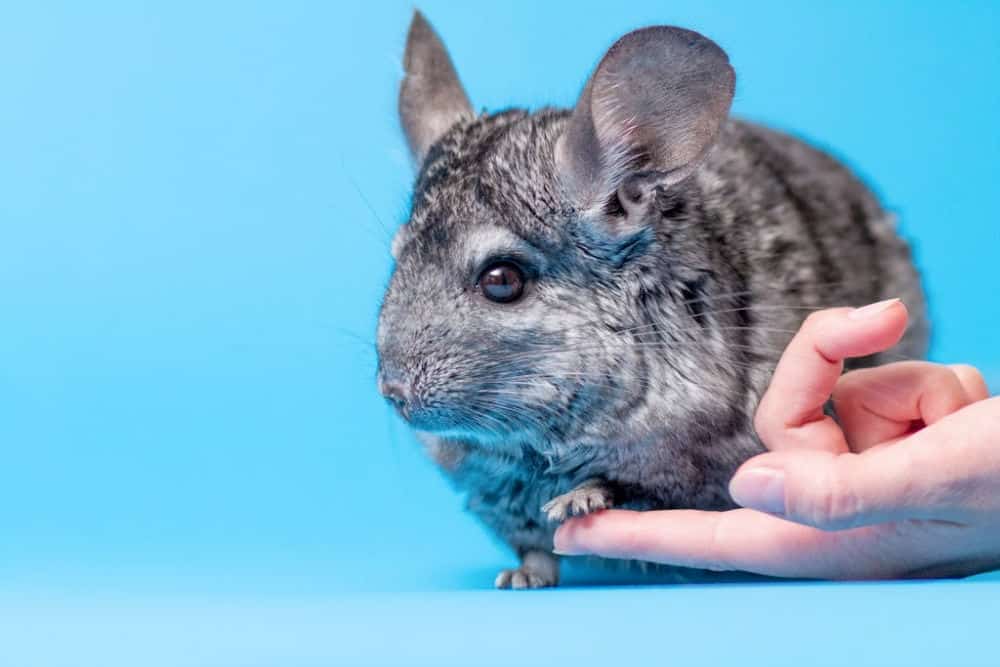
Chinchillas In the Wild
Chinchillas are native to the higher elevations (up to 14,000 feet (4,270 m) above sea level) of the Andes Mountains in South America. In the wild, they live in groups or colonies, called ‘herds,’ consisting of hundreds of members. They live in the rock crevices and burrows of the mountains.
Chinchillas in the wild are matriarchal, and females are the more dominant of the two genders. Females are often aggressive toward one another. They are also aggressive toward male chinchillas during mating season.
However, despite the female’s occasional aggressiveness with those around her, Chinchillas rarely fight with each other. They generally settle their disagreements through threat displays that may include growling, urinating, and chattering their teeth.
In the wild, it is thought that Chinchillas mate during the winter months. The females will typically remain with a single mate, and they give birth to two litters every year. The litter will usually produce two or three babies, and the gestation lasts approximately four months. However, females are polyestrous and are capable of breeding at any time of the year but seem to breed most often during the winter months.
Keeping a Single Chinchilla
If you decide to keep a single chinchilla, you will need to become that chinchilla’s friend. A single pet chinchilla needs lots of daily interaction from their human to be happy.
When you first bring home your chinchilla, it will take some time to get used to you. It’s best to start by offering it a treat and letting it come to you. While most chinchillas enjoy being petted, they are not always fond of being held. Even the friendliest chinchillas will put up a bit of a struggle when you try to pick them up. Although, if you are lucky enough to start with a young chinchilla, you can get it used to being handled, and then you may have more luck holding them.
Chinchillas are crepuscular, which means they are most active at dawn and dusk and spend most of the day sleeping. Early morning or night time is the best opportunity to spend time playing with and bonding with your chin. Once your chinchilla gets used to you and trusts you, you may find that they love to climb and decide that sitting on your shoulder or head is a fun thing to do.
Can chinchillas die of loneliness?
Technically, yes, a chinchilla can die of loneliness. However, a chinchilla is not merely going to die because it lives alone. Chinchillas are social animals who live in large extended family groups; they don’t choose to live alone in the wild.
Chinchillas learn to depend on and interact with their family members for playtime, grooming, foraging, and sleeping. All these normal activities provide exercise and mental stimulation to keep them happy.
When a chinchilla lives alone, it is denied the ability to do these things with other chinchillas. It is confined to a cage for the majority of the day except for the little amount of time it spends with you.
A life such as this can lead to depression, and eventually, the chinchilla loses its “zest” for life. Many may then become more prone to health problems that could lead to death. And yet others may go on living a less than optimal life even without the joy and companionship of either other chinchillas or a human companion.
This is why spending plenty of time with your chinchilla is so essential. The time you spend with your chinchilla improves the quality of its life and keeps your chinchilla happy.
Schedule Time to Spend With Your Chinchilla Daily
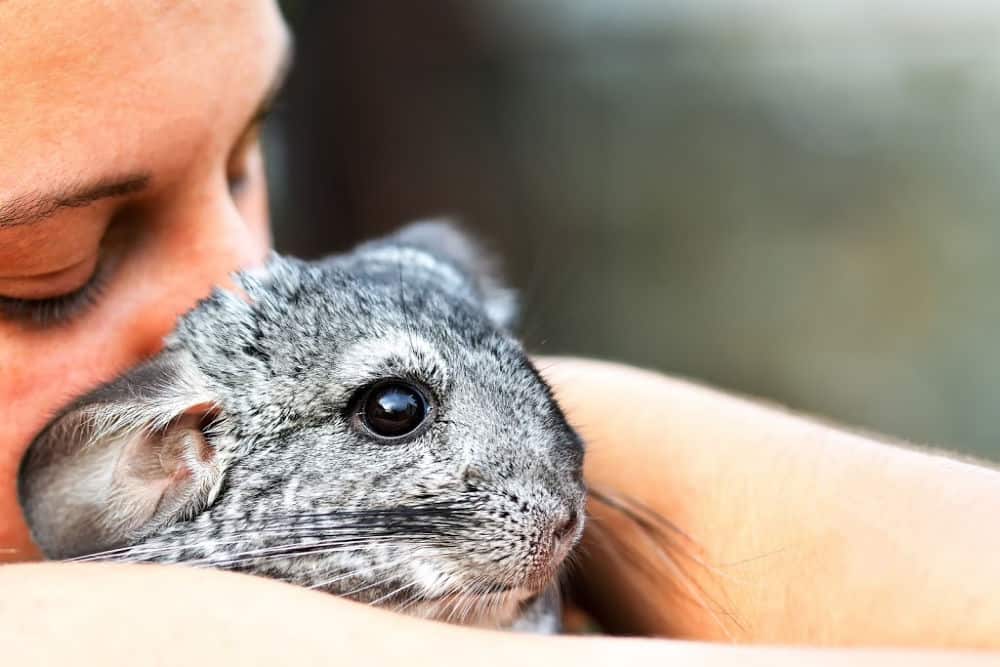
You’ve decided on owning a single chinchilla, so it is your responsibility to schedule time in your day to spend with your new pet.
As mentioned earlier, Chinchillas are crepuscular, which means you will need to find the time, either in the early mornings or in the evenings (or both) to spend with your chinchilla.
The more time you spend with your chinchilla, the quicker they will learn to trust you and become friends with you.
You should plan on scheduling at least 30-60 minutes (more if possible) per day playing and bonding with your chinchilla. Especially if you are a single chinchilla parent. Remember, Chinchillas are social creatures who need a time out of the cage daily to explore their surroundings and get to know you. A chinchilla that doesn’t get enough playtime with their human companion may cause them to become depressed.
Chinchilla Playtime Routines & Safety
Make playtime with your chinchilla, something that is enjoyable for you and your chin. Chinchillas are creatures of habit. They will learn to expect whatever routine you establish with them.
If you are an early riser, you could spend some time with them in the morning and then again in the evening when you have more time. When you keep a regular schedule, your chinchillas will come to expect it and will often be waiting at the front of their cage, eagerly waiting for you and ready to play.
Playtime needs to be in a safe, chin-proof area, like a bathroom or spare room. If a designated chin-proof room is not an option, you can use a small playpen made for animals. Chin-proofing a room or area is just making sure the area is free of things that can cause injury or illness to your chin.
What Does Playtime Look Like for Your Chinchilla?
Until your chinchilla is comfortable in your home and learns to trust you, playtime may not be out of its cage. It may look like sitting with your chin and talking softly while offering treats and the occasional scratch under the chin or on the nose.
Once you have established trust with your chinchilla, then playtime may morph into time out of its cage. Take it slow at first. Begin with five or ten-minute sessions. Increase the session duration by five minutes or so each week.
Letting your chinchilla run around for an hour or more when unaccustomed to so much activity can result in overheating or even seizures due to low blood sugar. Whereas gradually increasing playtime up to an hour or more when done slowly allows your chinchilla’s body to adapt to the increased activity level.
Related Questions
Do chinchillas need a lot of attention?
Chinchillas require lots of attention, especially when kept alone. Chinchillas are naturally social animals that need a lot more attention if you choose to keep them as a single pet. Be prepared to spend lots of time petting and playing with them daily and provide them with plenty of toys to keep them out of trouble.
Can chinchillas die of loneliness?
When Chinchillas are kept as solitary pets, they can become lonely and stressed, which can lead to a chinchilla who becomes depressed and may even lead to death in severe cases of loneliness. It would help if you were willing to spend lots of time with them to bond and become their friend and companion or provide them with a friend.
Can chinchillas live with other animals?
Chinchillas are considered prey animals in the wild, so they aren’t used to being friends with other animals. In your home, if you have other animals, your chinchilla will become used to seeing your cat or dog and may be fine with it from its cage’s safety. However, it is best to keep your other pets away from your chinchilla during one-on-one playtime to minimize stress or accidents.

